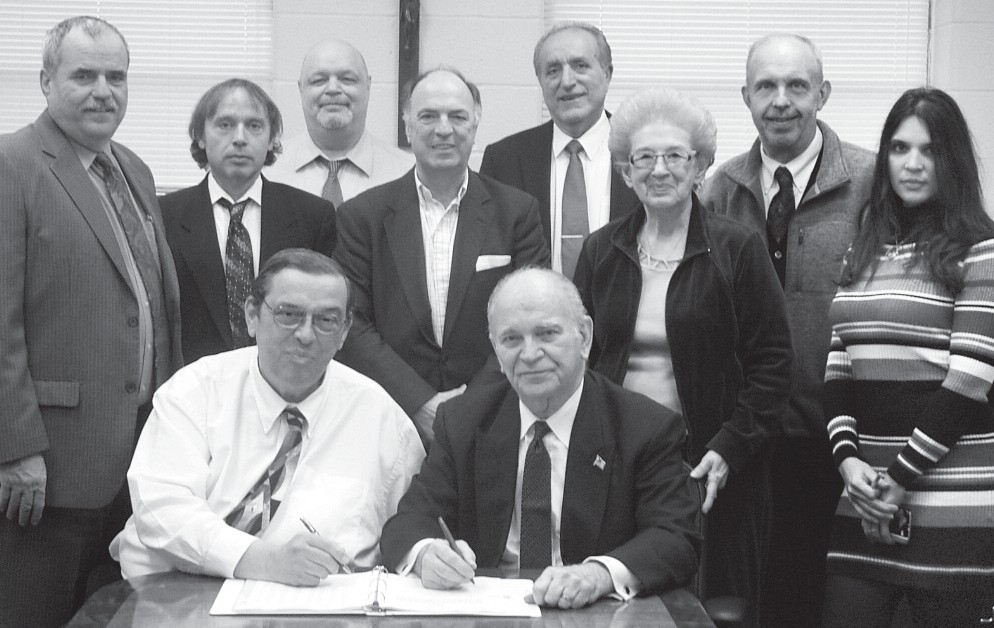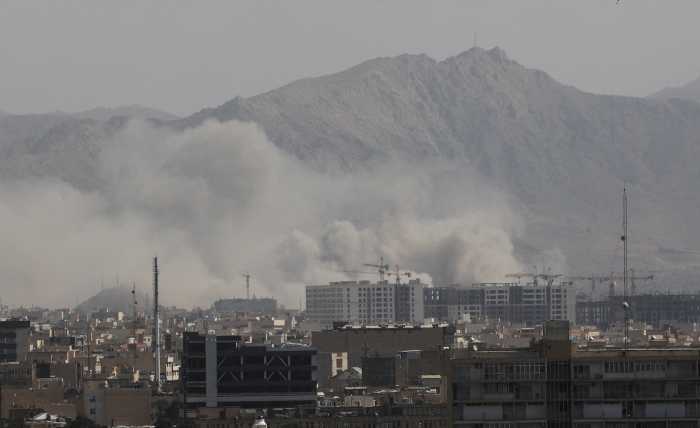Management Woes Complicated Rescues
Prior to a City Council Oversight Hearing examining the city’s disaster management plan before, during, and after Hurricane Sandy last Wednesday, Jan. 16, EMS members joined Council Member Elizabeth S. Crowley, chair of the Fire and Criminal Justice Services Committee, at a press conference to illustrate failed policies and planning that put responders at increased risk during the storm.

Poor administrative planning and an unmanageable span of control made it difficult for EMS personnel to operate during Hurricane Sandy, and a lack of a clear chain of command led to conflicting orders and mismanagement, according to Crowley.
She was joined at the conference on the steps of City Hall by Uniformed EMTs, Paramedics and Fire Inspectors Local 2507 President Israel Miranda and Uniformed EMS Officers Union Local 3621 President Vincent Variale.
“Even on a normal day EMS members face numerous challenges because the city ignores Department of Homeland Security guidelines that calls for a span of control of one supervisor to five members. Yet even after an independent arbitrator ruled the FDNY is violating these guidelines, EMS supervisors oversee an unmanageable twenty or more members,” said Crowley. “Our medics performed admirably during Sandy in spite of this failed administrative policy that led to poor communication and decisions that unnecessarily placed our responders in harm’s way and prevented some of them from doing their jobs during Hurricane Sandy.”
“We are saddened by any lives that were lost during the storm,” said Vincent Variale, president of the Uniformed EMS Officers. “If not for the commitment and dedication of the front line members of the EMS Command many more lives may have been lost.”
One of the chief complaints from EMS members is that even as fire companies in flood-prone areas were being relocated, the administration denied requests from EMS companies to be relocated.
Some responders had to be rescued from floodwaters because they followed orders to continue manning their posts, many ambulances were flooded out of service and several destroyed. Other ambulances continued to be put out of service due to electrical problems and sea water damage due to being left in flood zones.
EMS members were also disadvantaged with low staffing numbers, Crowley stated. There was no call to increase staffing before the storm, and during the storm, were told that they should switch shifts. Some responders attempted to report to work, but were told to remain home.
According to the lawmaker, many of these issues stem from poor communication and mismanagement due to a span of control that well exceeds the national average and federal guidelines. The U.S. Department of Homeland Security directed the creation of the National Incident Management System (“NIMS”) in order to develop a consistent framework for the federal government, as well as state and local governments to use in responding to incidents.
The NIMS requirements specify that a reasonable and manageable span of control ratio should fall within the range of three to seven members per supervisor, with five being the optimal number. The Fire Department routinely maintained a span of control ratio in excess of 20 members per supervisor for EMS personnel.
In an arbitration proceeding between the EMS lieutenants and captains union and the Fire Department, the arbitrator held that the Fire Department was in violation of its collective bargaining agreement with the union and ordered the Department to consult with the National Integration Center in order to come into compliance with the NIMS span of control requirements.
Decreasing span of control would lead to less confusion, improved organization, and led to a better plan during Hurricane Sandy.
Crowley also called for increased promotional exams for EMS personnel. Currently, all supervisory positions above lieutenant are appointed. Civil service promotional exams would ensure the leaders of the department are the best qualified and able to lead without fear from retribution from supervisors.
Crowley was also joined by Faye Smyth, president of the Fire Alarm Dispatchers Benevolent Associaion, who spoke about serious problems with the Unified Call Taking System. The system, a $2 billion investment, crashed during the storm, the Council member stated.



































